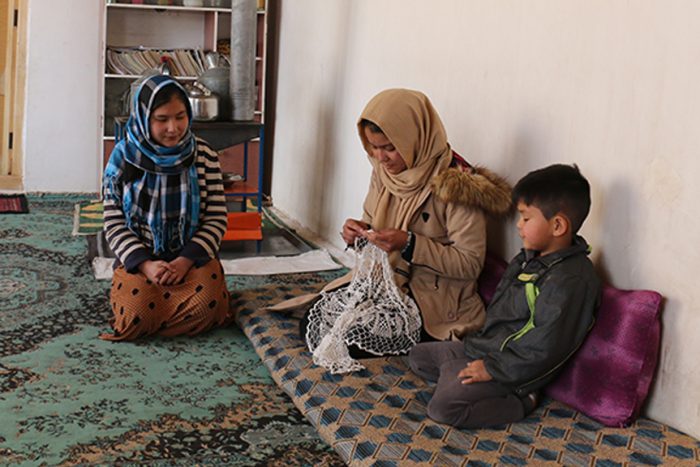Rahila stands strong amid multiple crises
“Education has always been a priority for my father. He urged my two sisters and I to put education above anything else in order to have a brighter future,” shared Rahila, a 22-year-old student at a local high school in Bamyan. She is the eldest among five siblings, with her 10-year-old brother being the youngest.
Rahila and her family were old residents of Kabul but were forced to move out of the city in July last year amid their father’s death. Now they live in Zargaran village, located in the centre of Bamyan province.
“My father earned a monthly wage of AFN 500 (Approx. USD 6) as a labourer in Kabul. It was difficult to make ends meet with the limited income. With limited livelihood and a family to provide for, our father developed high blood pressure. His health deteriorated day by day till he succumbed to cancer in May 2020. Our family’s sole breadwinner and supporter were no longer with us. We could not afford to pay the rent of the home as there was no one earning in the family. Therefore, we had to move to Bamyan in search for better livelihoods and to live closer to relatives,” expressed Rahila sadly.
“In September 2020, my mother tested positive for COVID-19. We did not have access to any healthcare where we lived. We also did not have sufficient finances to pay for her travel to a big hospital in another city. With no proper care and lack of resources, our mother also died in our arms at home. The four of us were left without parents in the midst of a pandemic in the same year.”
“After the death of our parents, my three sisters and I went through a period of depression as we did not know how to support each other and our younger brother. We did know how to buy food as we had no source of income and no support of any kind,” shared Rahila. “I can never forget the day I received a call from the project team of Community World Service Asia.”
When the family had arrived in Bamyan in July, following their father’s death, Rahila’s mother had gotten registered in the DoRRⁱ database to be eligible for humanitarian support from the government or the aid sector. So, when CWSA’s project was initiated, Rahila and her family were selected as participants.
“We received AFN 6900 (Approx. USD 90) monthly for five months. We purchased essential food items with the cash we received including wheat flour, rice, oil, pulses, sugar, fruits, and vegetables.”
To earn more income for the family, Rahila also started handcrafting products for which she purchased some raw materials from the cash they received. She will sell the products at the local market.
Rahila and her siblings continue to attend a local school in the vicinity as that is what their father would have wanted for them. He had big dreams for his children and the hope for a bright and successful future was instilled in them too. They knew if they studied and worked hard, they would have a happy and content life.
“The cash support has allowed me to manage our necessary household expenses. I have saved money to pay for my siblings’ school fees and will be able to afford my own education too once I start selling my handcrafted products in the nearby markets.”
“My siblings are too young to be working. Education is the only way to ensure that we have a brighter future. I would urge organisations to continue their support to us and many others like us, especially for the education of children and young adults so that we may advance professionally and sustain ourselves,” concluded Rahila.
ⁱ Department of Refugees and Repatriation (DoRR)







